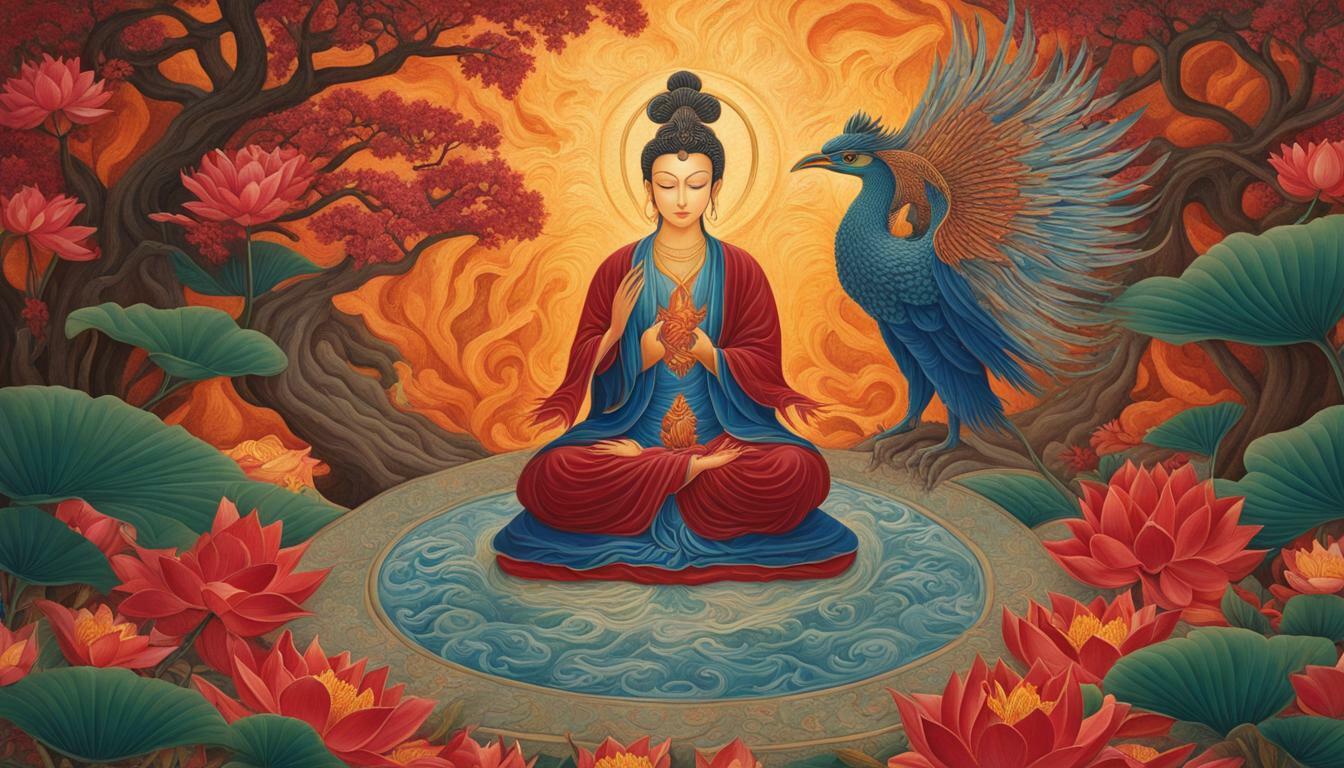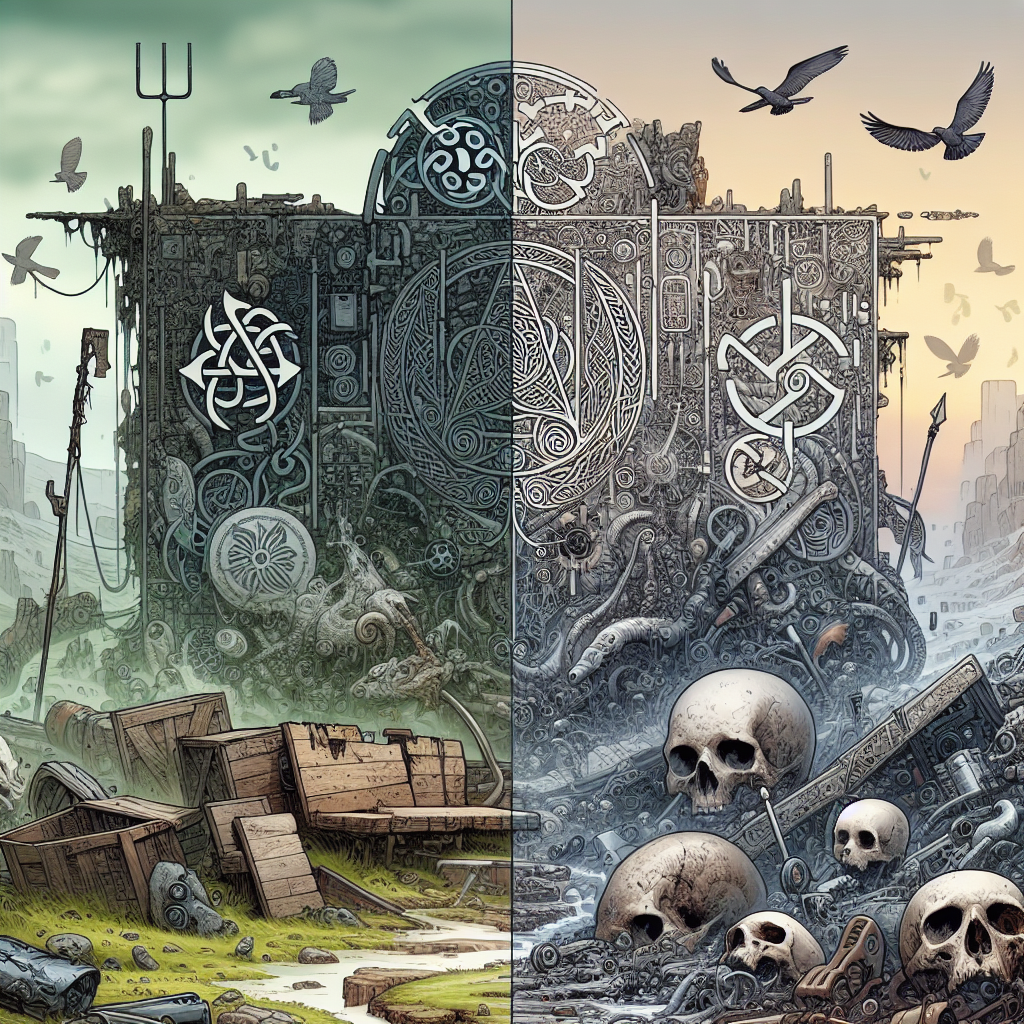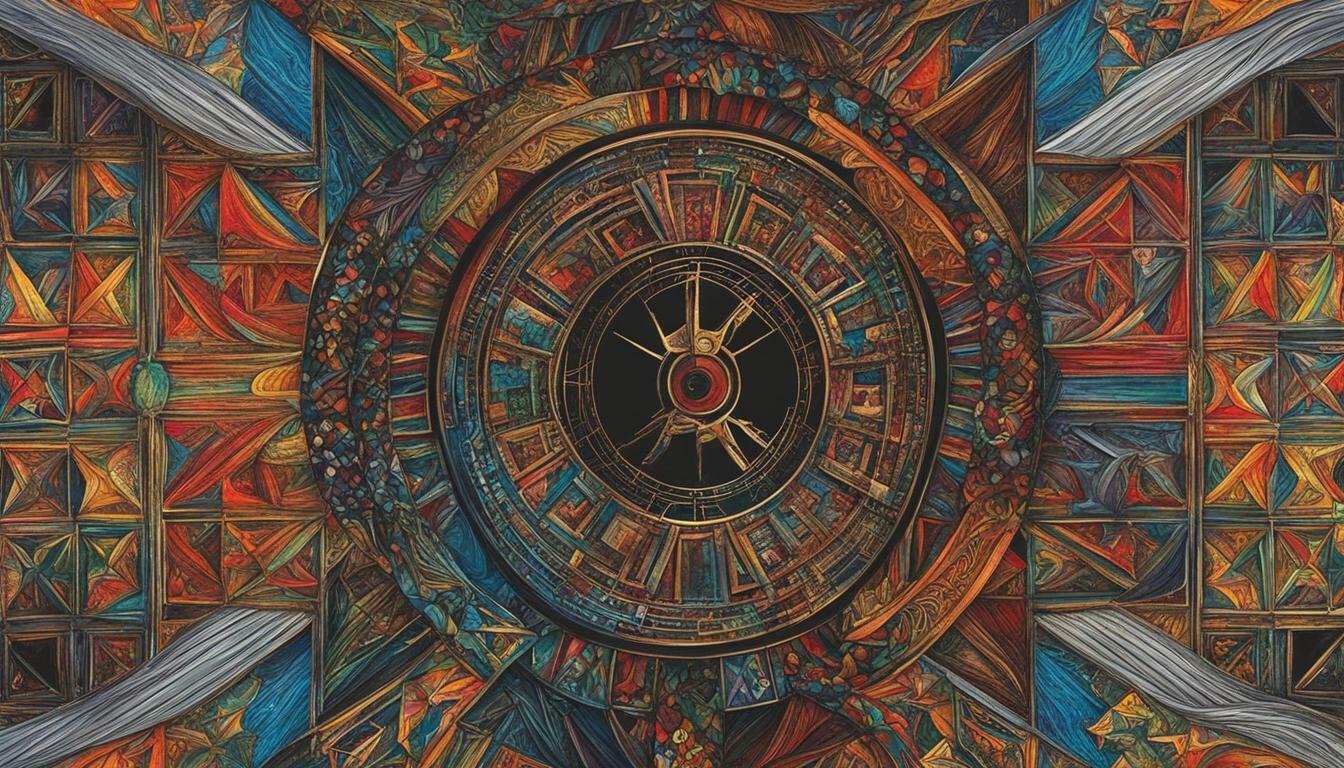Reincarnation and resurrection are two concepts that have fascinated and puzzled humanity for centuries. While both involve the idea of life after death, they are fundamentally different in their beliefs, practices, and implications. In this article, we will explore the key distinctions between reincarnation and resurrection, examining their definitions, significance, and contrasting experiences.
Key Takeaways
- The difference between reincarnation and resurrection lies in their core beliefs and practices.
- Reincarnation involves the belief in the cycle of birth, death, and rebirth, while resurrection revolves around the idea of the afterlife and the resurrection of the body.
- Understanding the differences between these concepts is crucial for comprehending various religious and philosophical traditions.
Definition and Significance of Reincarnation
Reincarnation is a concept that refers to the rebirth of a soul or spirit in a new physical body after death. This belief is prominent in many religious and philosophical traditions, including Hinduism, Buddhism, and Sikhism.
The fundamental belief of reincarnation is that the soul is eternal and that it passes through a cycle of birth, death, and rebirth. The process of reincarnation is guided by karma, the principle that our actions in this life influence our future lives.
Reincarnation has been an important concept in Eastern religions for centuries. It provides a framework for understanding the nature of existence and the eternal nature of the soul. For many, the concept of reincarnation offers hope and comfort, as it suggests that death is not the end, but rather a transition to a new life.
Unlike resurrection, which is often associated with a single religious tradition, reincarnation has been embraced by many different cultures and belief systems. While the specifics of the concept may differ depending on the tradition, the underlying belief in the rebirth of the soul remains at the core.
Overall, the concept of reincarnation is significant for its role in shaping the beliefs and practices of many cultures and religions. It offers a way to make sense of the eternal nature of the human spirit and our place in the world.
Key distinctions between Reincarnation and Resurrection, Reincarnation and Resurrection Explained, Reincarnation vs Resurrection
Exploring Resurrection in Religious Contexts
Resurrection is a concept deeply rooted in many religious traditions, especially in Abrahamic religions like Christianity and Islam. Unlike reincarnation, which involves the cycle of birth, death and rebirth, resurrection refers to the idea of rising from the dead in one’s current physical body.
In Christian theology, resurrection is considered to be a central tenet of the faith. The belief in the resurrection of Jesus Christ forms the basis of Christianity, with many Christians believing that Jesus’ resurrection signified his victory over death and the promise of eternal life for all believers.
However, there are some differences in the ways that resurrection is understood across religious traditions. In some religions, resurrection is seen as a one-time event, while in others, it is believed to be a continual process that occurs for all people.
Despite these variations, the concept of resurrection remains a powerful symbol of hope and renewal for many people, offering the possibility of life beyond death and the chance to be reunited with loved ones who have passed away.
Resurrection vs Reincarnation
While resurrection and reincarnation are both concepts that involve life after death, there are several key differences between the two. Reincarnation involves the idea that after death, the soul is reborn into a new body, with the individual having no memory of their previous life. On the other hand, resurrection refers to the idea of rising from the dead in one’s current physical body, with the individual retaining their memories and identity from their previous life.
Another significant difference between the two is the role of karma. In reincarnation, the individual’s actions in their previous lives determine their position in their next life, whereas in resurrection, the individual’s fate is usually determined by their belief in a higher power.
Despite these differences, both concepts offer the possibility of life beyond death and the chance to continue one’s journey beyond this physical realm.
Contrasting Beliefs and Experiences
While reincarnation and resurrection both involve life after death, they differ significantly in their core beliefs and experiences. A comprehensive analysis of these concepts requires a closer look at their distinct characteristics.
What sets them apart?
One of the key differences between reincarnation and resurrection is the belief in the continuity of the self. In reincarnation, the soul or spirit is said to be reborn in a new body, retaining its identity and memory from past lives. Resurrection, on the other hand, involves the restoration of a physical body to life, often with the expectation of a heavenly afterlife.
Another key difference between these beliefs is the role of divine judgment. In reincarnation, the concept of karma plays a significant role in determining the circumstances of the soul’s rebirth. In contrast, resurrection is often associated with the idea of divine judgment, where one’s actions in life determine their eternal fate.
Reincarnation and Resurrection Compared
Reincarnation and resurrection are also distinct in their cultural and religious contexts. Reincarnation is a central concept in Hinduism, Buddhism, and other Eastern religions, while resurrection is a prominent belief in Christianity.
In Hinduism and Buddhism, reincarnation is seen as a way to break the cycle of suffering and achieve spiritual liberation. In contrast, the resurrection of Jesus Christ in Christianity is interpreted as a divine act of redemption and a promise of eternal life for believers.
An Individual Analysis of Reincarnation and Resurrection
Reincarnation and resurrection also shape individual beliefs and practices. Those who believe in reincarnation may place greater emphasis on the importance of karma and spiritual growth in their daily lives. In contrast, those who believe in resurrection may focus on living a life consistent with Christian teachings to ensure eternal salvation.
Additionally, while reincarnation often involves a cyclical view of life and death, resurrection is often associated with a linear understanding of history and the end times.
Overall, while reincarnation and resurrection both involve beliefs about life after death, they have distinct characteristics that set them apart from each other. Understanding these differences is essential for gaining a comprehensive understanding of these concepts and their role in various cultural and religious traditions.
Conclusion
After examining the fundamental differences between reincarnation and resurrection, it is clear that these concepts hold significant importance in many religious and philosophical traditions. Reincarnation involves the belief in a cycle of birth, death, and rebirth, while resurrection typically refers to the belief in the resurrection of the body in an eschatological context.
While both concepts involve ideas of an afterlife and the continuation of the self beyond physical death, they differ significantly in their beliefs and experiences. Reincarnation focuses on the idea of karma and the soul’s journey through multiple lifetimes, while resurrection places emphasis on a final judgement and the resurrection of the physical body at the end of time.
It is important to note that these differences in beliefs and experiences have significant impacts on individual practices and beliefs. Reincarnation encourages individuals to focus on their actions and their impact on future lives, while resurrection places emphasis on the judgment of one’s actions and the ultimate destiny of the soul.
In conclusion, while reincarnation and resurrection share some similarities, they are fundamentally different concepts with unique implications and significance. Understanding these differences is key to gaining a comprehensive understanding of various religious and philosophical traditions.
FAQ
Q: What is the difference between reincarnation and resurrection?
A: Reincarnation is the belief in the cycle of birth, death, and rebirth, where a soul is believed to be reborn into a new body after death. Resurrection, on the other hand, refers to the belief in the revival of the same physical body after death, often associated with religious beliefs such as Christianity.
Q: Why is reincarnation significant in various religious and philosophical traditions?
A: Reincarnation holds significance in many religious and philosophical traditions as it provides a framework for understanding the concept of karma, where one’s actions in this life determine their future lives. It offers the opportunity for spiritual growth and the chance to learn from past experiences to attain enlightenment or liberation.
Q: How does resurrection fit within religious contexts, especially in Christianity?
A: Resurrection is a central belief in Christianity. It refers to the belief in the revival of the same physical body after death, as exemplified in the resurrection of Jesus Christ. It is linked to eschatological beliefs about the final judgment and the hope of eternal life with God.
Q: How do reincarnation and resurrection differ in terms of core beliefs and experiences?
A: Reincarnation and resurrection differ in various ways. Reincarnation focuses on the cycle of birth, death, and rebirth, with an emphasis on personal growth and karmic consequences. Resurrection, on the other hand, emphasizes the revival of the same physical body after death, often associated with divine intervention and the hope of eternal life.
Q: What are the key distinctions between reincarnation and resurrection?
A: The key distinctions between reincarnation and resurrection lie in their beliefs about the afterlife, the processes involved, and the underlying philosophies. Reincarnation focuses on the rebirth of the soul into a new body, while resurrection is centered around the revival of the same physical body. These concepts shape individual beliefs and practices, providing unique perspectives on life, death, and the journey of the soul.
 Skip to main content
Skip to main content


